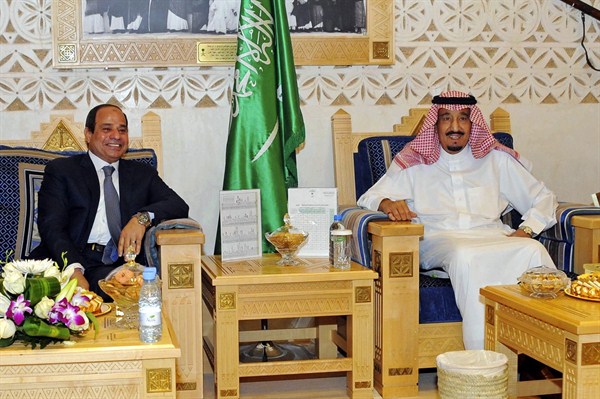The governments of Egypt and Saudi Arabia, arguably the Arab world’s two most influential states, continue to express their determination to strengthen an alliance that has grown under Egyptian President Abdel-Fattah el-Sisi. In late July, el-Sisi and Saudi Defense Minister and Deputy Crown Prince Mohamed bin Salman signed a deal they called the Cairo Declaration, a strategic blueprint to advance bilateral cooperation in a host of areas, especially defense and the economy.
Since 2013, Saudi Arabia and other Arab Gulf states have helped keep el-Sisi’s regime afloat, with billions in economic aid. Egypt, in turn, has been a partner in the Saudi-led war against Houthi rebels in Yemen and earlier this week sent up to 800 ground troops there.
The Cairo Declaration isn’t a revelatory policy statement. Its central aim, to create a joint Arab military force, simply reiterates a decision taken at the Arab League Summit in Egypt last March. And calls for greater economic cooperation skirt the fact that Saudi Arabia is already Egypt’s largest source of Arab investment—to the tune of $10 billion dollars in 2014. In fact, the declaration’s only novel element is a promise to demarcate Egypt and Saudi Arabia’s maritime boundaries. That will allow both governments to resolve a sovereignty dispute over the Egyptian-administered but Saudi-claimed islands of Tiran and Sanafir off the Sinai Peninsula in the Red Sea, though this slow-burning irritant has never really threatened to derail bilateral ties.

